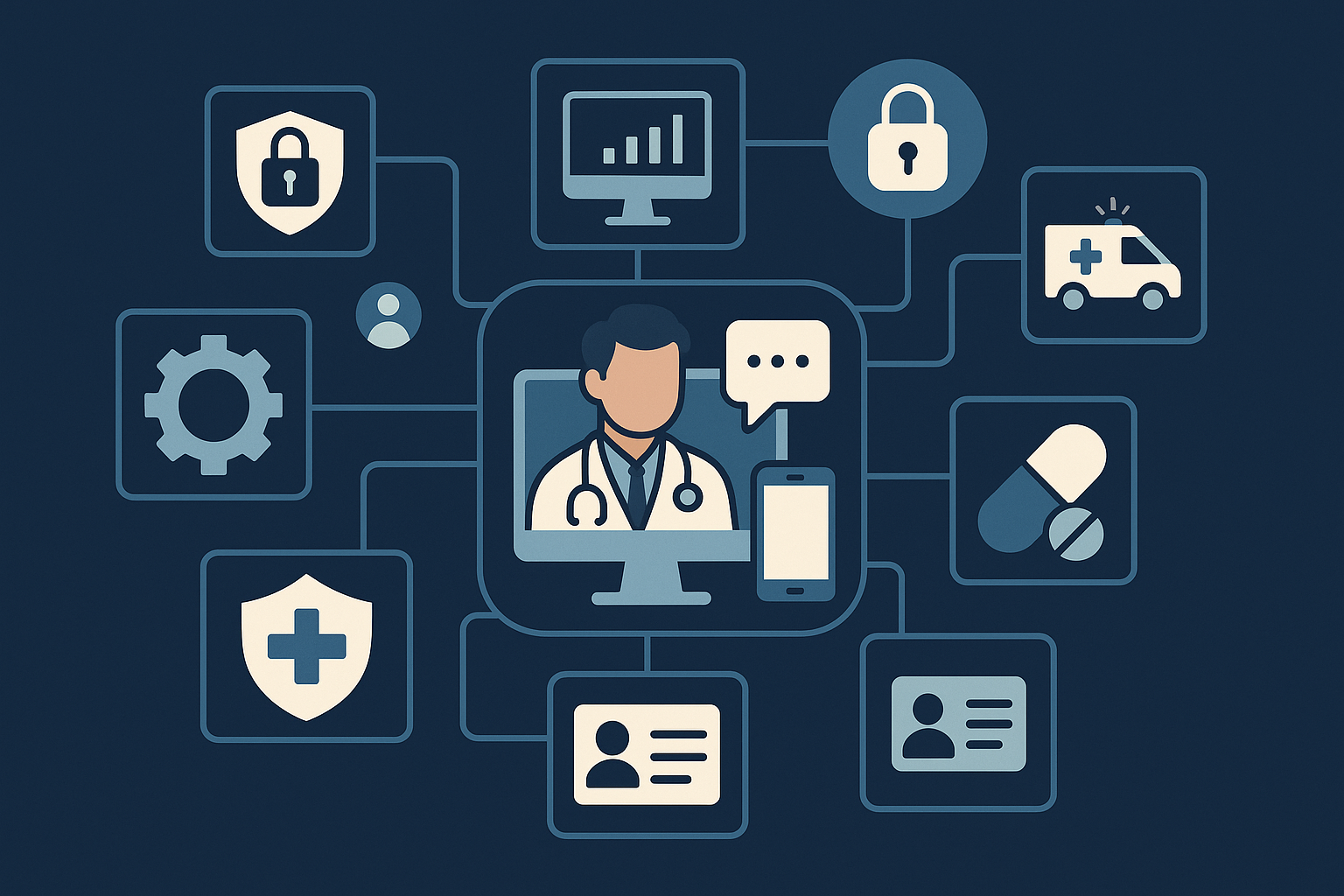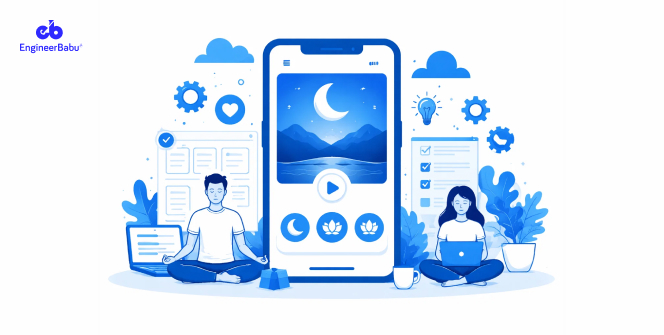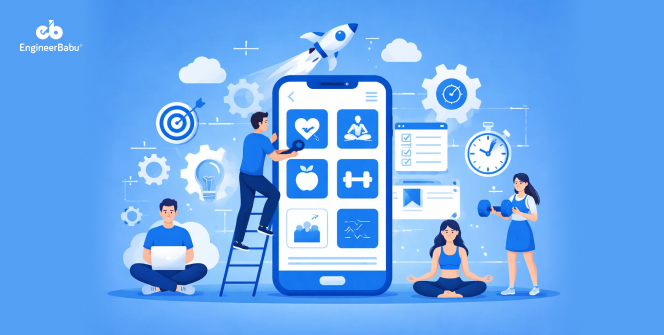Worried your healthcare app might miss HIPAA requirements or leak patient data? You’re not alone. Healthtech brands can’t afford to get security wrong. One mistake could cost you users, trust, or worse, legal trouble.
In 2023 alone, over 275 million healthcare records were exposed, stolen, or impermissibly disclosed due to data breaches, affecting approximately 82% of the U.S. population.
To build secure and compliant health apps, your API stack matters more than you think. Whether you’re managing patient records, offering telehealth, or syncing with wearables, the right healthcare APIs are what keep your app connected, private, and legal.
In this post, you’ll get a list of 9 APIs that top healthtech companies rely on. These aren’t random picks, they cover EHR integration, patient data security, telehealth, and everything in between. Plus, we’ll show you how to use them the right way to stay compliant from day one.
Top Healthcare APIs to Build Apps
1. Redox
Redox is one of the most widely used APIs for integrating healthcare apps with electronic health record (EHR) systems. It acts as a bridge between your app and over 85 EHR platforms, including Epic, Cerner, Allscripts, and Meditech. This means your development team does not have to build a separate integration for each system, which can save both time and money.
Key Features:
- Real-time exchange of patient data across systems.
- Scalable architecture for healthtech startups and enterprise-level apps.
- Fully HIPAA compliant with encryption, monitoring, and access control.
Why use Redox:
Apps that handle sensitive patient information such as diagnoses, lab results, prescriptions, or clinical notes need access to EHRs. Redox provides a consistent API that normalizes data from different sources, making it easier to process and secure. It also helps developers meet strict compliance standards without building those protocols from scratch.
2. TrueVault
TrueVault is an API designed specifically to help healthcare apps stay HIPAA compliant. It handles patient data storage, access control, and audit logging so that your app doesn’t have to build those systems from scratch. If you’re dealing with sensitive health records, this is one of the fastest ways to stay legally compliant.
Key Features:
- Encrypted storage for personal health information (PHI).
- Built-in access management and user authentication.
- Automatic audit trails for every data interaction.
Why use TrueVault:
Storing patient data means you’re on the hook for every piece of compliance. TrueVault gives you a plug-and-play backend that meets HIPAA, GDPR, and CCPA standards. That makes it especially helpful for brands outsourcing healthcare app development. Your dev partner can plug into TrueVault without needing to be HIPAA experts themselves.
3. Particle Health
Particle Health is an API that helps your app tap into a nationwide network of medical data. Instead of connecting to individual hospitals or providers, you get access to a unified data stream from over 300 million patient records across the United States.
Key Features:
- Aggregates data from multiple sources including hospitals, labs, and pharmacies.
- Supports clinical documents, medications, allergies, and immunizations.
- Built-in patient matching and consent tools.
Why use Particle Health:
When your app needs to pull a complete medical history fast, Particle saves hours of manual work. It connects to CommonWell and Carequality networks, giving you broad data coverage with a single API. For apps focused on preventive care, diagnostics, or patient onboarding, this kind of access helps reduce errors and speed up decisions.
4. Twilio
Twilio is a communications API that brings secure voice, video, and messaging to healthcare apps. If your platform offers telehealth, appointment reminders, or two-way patient communication, Twilio makes it easy to build those features without handling the complexity yourself.
Key Features:
- Encrypted video calls for virtual consultations.
- HIPAA-ready SMS and voice messaging.
- Tools for verifying user identity and consent.
Why use Twilio:
Most healthtech platforms need real-time communication. Whether it’s a doctor following up on test results or a chatbot confirming a patient visit, that data has to move securely. Twilio handles the transmission and storage of that communication in a way that meets HIPAA standards. It also helps reduce missed appointments and keeps patients engaged through automated reminders.
5. Eligible
Eligible is an API that helps healthcare apps verify insurance coverage in real time. Instead of calling insurance companies or manually entering data, apps can instantly check if a patient is covered, what the copay is, and whether prior authorization is needed.
Key Features:
- Real-time insurance verification.
- Secure handling of sensitive financial and health data.
- Compatibility with over 2,000 insurance payers.
Why use Eligible:
Billing issues are one of the top reasons patients delay or avoid care. By using Eligible, your app can give users clear answers on what their insurance covers before they even step into a clinic. This cuts down on confusion, billing errors, and administrative costs. For platforms that handle scheduling or intake, this kind of transparency is a major value-add.
6. Apple HealthKit and Google Fit
Apple HealthKit and Google Fit are APIs that let your healthcare app connect to health data collected from smartphones and wearables. That includes heart rate, step count, sleep cycles, and even nutrition logs, depending on what the user tracks.
Key Features:
- Access to real-time activity and health metrics.
- Built-in user consent and permission controls.
- Compatible with smartwatches, fitness bands, and mobile apps.
Why use these APIs:
If your app deals with wellness tracking, chronic condition monitoring, or personalized care plans, this is where a lot of valuable data lives. These APIs let users share their own data with your app safely. Both platforms give users full control, which builds trust and keeps your app on the right side of privacy regulations.
7. Human API
Human API gives your healthcare app secure access to verified medical records, all with patient consent. It connects to clinics, labs, pharmacies, and even wearable devices, offering a full view of someone’s health data in one place.
Key Features:
- Connects to thousands of health data sources across the U.S..
- Consent-based sharing with detailed access logs.
- Coverage includes clinical, pharmacy, and fitness data.
Why use Human API:
If your app needs to pull a patient’s health history quickly and legally, Human API makes that simple. It’s especially useful for onboarding new users, supporting second opinions, or creating complete health profiles. Every data request is consent-driven, so it keeps patients in control and supports strong privacy practices.
8. Infermedica
Infermedica offers an API that helps healthcare apps screen symptoms and guide patients to the right level of care. It combines a medical knowledge base with AI to ask smart questions and suggest next steps, like seeing a doctor or going to urgent care.
Key Features:
- AI-driven symptom checker with over 1,300 conditions.
- Triage guidance based on user responses.
- Built-in privacy and data protection tools.
Why use Infermedica:
When users aren’t sure what’s wrong or where to go, this API provides a clear and fast way to assess symptoms. It reduces unnecessary ER visits and improves patient experience by offering reliable advice before the first appointment. The tool also protects user data and keeps a detailed audit trail, which is key for compliance.
9. Xealth
Xealth is a healthcare API that helps apps prescribe digital content, apps, and services directly within a provider’s workflow. It integrates with EHR systems to deliver health education, remote monitoring tools, or app recommendations based on a patient’s condition.
Key Features:
- Syncs with major EHR platforms.
- Tracks patient engagement with digital tools.
- HIPAA compliant infrastructure.
Why use Xealth:
This API is a great fit for platforms focused on care coordination and patient engagement. Instead of just treating symptoms, apps can guide users with content and tools that support long-term health. Xealth makes sure those recommendations fit into a provider’s workflow, improving follow-through and reducing gaps in care.
Conclusion
The healthcare API stack you choose will shape how secure, reliable, and scalable your app turns out to be. Whether you’re syncing with EHRs, verifying insurance, or guiding users through symptoms, the APIs covered here are used by some of the most trusted names in digital health.
If you’re building or outsourcing healthcare app development, start with APIs that are built for HIPAA compliance and proven in real use cases. Security, privacy, and speed are not optional when patient data is involved.
Choosing well-tested APIs like Redox, Twilio, or TrueVault doesn’t just help with features. It helps you build trust with users, get to market faster, and stay compliant without reinventing the wheel.
FAQ
1. Are these APIs only for U.S.-based healthcare apps?
No. While many of the APIs like Redox and Particle Health are built around U.S. standards such as HIPAA, some also support GDPR and international data compliance. APIs like Human API and Apple HealthKit can be adapted for global use depending on local regulations.
2. Can I use more than one healthcare API in my app?
Yes. Most healthcare apps use a combination of APIs to handle different functions such as EHR access, communication, and insurance checks. The key is to make sure they are integrated securely and work well together without exposing patient data.
3. How often are healthcare APIs updated?
Top-tier APIs like Twilio and TrueVault release regular updates to keep up with security patches, compliance changes, and performance improvements. It’s important to monitor API documentation and set alerts for version changes.
4. Do I need developer expertise to use these APIs?
You’ll need a skilled development team to handle integration, especially if your app has to meet strict compliance standards. APIs simplify the job, but you still need to write secure code, manage tokens, and monitor logs.
5. Can EngineerBabu help us integrate these healthcare APIs?
Yes. EngineerBabu specializes in healthtech development and has experience working with all major healthcare APIs. Whether you’re building a telemedicine platform, EHR-based solution, or a wellness app, they can help you launch faster while staying compliant.
Meta Title:
9 Best Healthcare APIs to Build Secure and Compliant Health Apps
Meta Description:
Looking to build a secure healthcare app? Discover 9 powerful healthcare APIs that support HIPAA compliance, EHR integration, telehealth, and patient data security.




